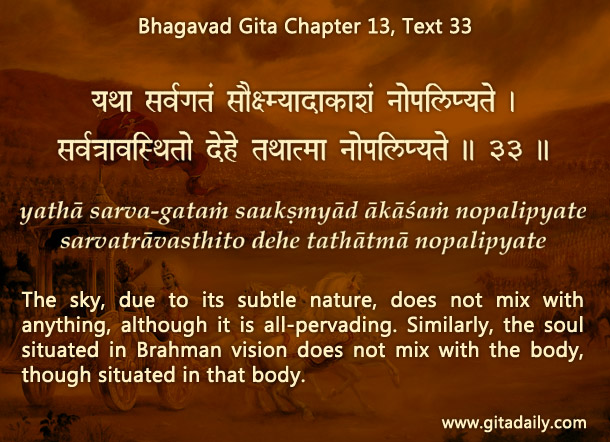People who take everything personally are usually touchy. If they come up with an idea and someone points out a problem with it, they treat that objection as a personal attack on them. Driven by reactive emotions, they go into a hyper-defensive or hyper-offensive mode. Being unable or unwilling to learn from others’ inputs, they become obstacles for their own growth.
The problem becomes worse when they take life’s events personally. Thus, whenever things go wrong, they let that reversal become a statement about themselves: “I was born with a rotten destiny.” Or whenever they do something wrong, they make that mistake into a judgment of their self-worth: “I am good-for-nothing.”
Gita wisdom explains that misery is an inherent characteristic of the material world. So, the misery that befalls us is a part of the world’s nature – it is not necessarily a statement about us. Even if the misery is because of our past bad karma, still that karma doesn’t determine what we can do – or, more importantly, who we can be. If we let whatever happens in the course of life define us, we undermine our freedom to choose and grow.
Just as those who distance themselves from their ideas can take feedback objectively and improve themselves, similarly, when we learn to distance ourselves from events, we can respond constructively.
The Bhagavad-gita reinforces our capacity to thus distance ourselves by explaining our non-material identity as souls. The Gita (13.33) indicates that just as the sky being subtle is unaffected by the grosser things it contacts, we can stay unaffected amidst worldly dualities by contemplating our transcendental identity. Further, by practicing yoga, we can experience peace and power in our spiritual relationship with Krishna. Being thus spiritually sheltered, we can observe things from a detached non-threatened perspective and respond to problems with growth-promoting solutions.
Explanation of article:
Podcast:


Thanks for sharing your thoughts on chapter 13.
Regards